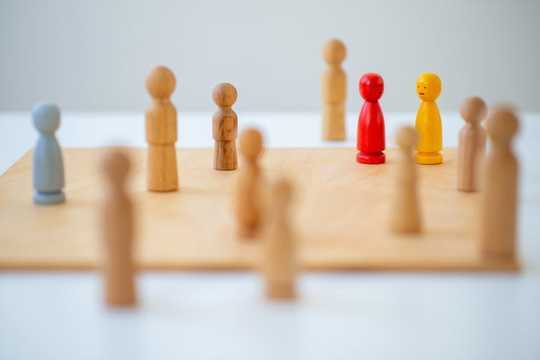What’s the first thing that comes to mind when you hear the term “post-traumatic stress disorder”? When I ask this question in public presentations, the answers are along the lines of “the military”, “soldiers” and “war”. Then, when my next slide displays military themed images, it seems as if I have ingeniously predicted the audience’s response.
That fact that people typically associate post-traumatic stress disorder (PTSD) with war presents a significant problem. Because, while public awareness around PTSD and trauma exposure is increasing, the information people have may be inaccurate or incomplete. And this risks the disorder, and those who are living with it, being misrepresented and misunderstood.
As the full description spells out, PTSD is a psychological disorder that may develop following exposure to a traumatic event. This exposure is more common than people might think, with recent research suggesting that around 90% of us will experience at least one traumatic event in our lifetime.
Clinically speaking, these events are defined as any event in which someone is exposed to actual or threatened death or serious injury. This could include a serious accident, or experiences of violence or abuse.
Get The Latest By Email
But not everyone who experiences trauma will go on to develop PTSD. While it is typical that most will experience some symptoms, it is thought around 8% of people will be diagnosed with PTSD after a traumatic event.
Symptoms include nightmares or flashbacks, feeling constantly on edge, deliberately avoiding reminders of the trauma and experiencing intrusive memories. There may be a change in mood, sleep difficulties, anger and feelings of being unsafe.
In the first few weeks after a traumatic experience, these symptoms are quite common, and often form part of a normal recovery. But if they persist or interfere with daily functioning, psychological intervention may be required.
Family impact
My recent research found that PTSD can have several negative effects on parents, such as an increase in shouting or hitting children. And my in-depth discussions with parents revealed how they feel their behaviour has changed.
Some spoke about feeling angrier or having a shorter temper. Others mentioned finding noisy play distressing, causing them to yell at their children or even leave the room.
There was also a sense that their PTSD prevented them from doing certain family activities, such as going to shopping centres or visiting the cinema. This made them feel like they were letting their children down because they couldn’t do what “normal parents” do.
But underneath these negative experiences, the underlying message from these discussions was clear. PTSD does not impair a parent’s love for their children or stop them from wanting what is best for them.
Removing themselves from a noisy room was not a sign of being unwilling to bond, but an effort to preserve their child’s playtime without being yelled at. Being unable to do certain activities led to more creative thought around how best to spend time with their child. So instead of going to the cinema, they might rent a film at home and hold a “movie night” with duvets and popcorn.
 Impact on others. Shutterstock/Sonja Filitz
Impact on others. Shutterstock/Sonja Filitz
But as an outcome of their PTSD, parents tended to find it difficult to see the positive sides to their parenting. That said, research has found that children are often a source of resilience and a motivation to actively engage in treatment – which highlights why receiving effective formal treatment for PTSD is so important.
Effective treatment
PTSD often exists alongside other mental health difficulties, such as anxiety and depression. So patients may often be prescribed some form of medication, such as antidepressants, to help them cope.
Although this may help the person in the short-term, evidence suggests that there is no solid benefit of drugs to help treat PTSD. Instead, receiving some trauma-focused therapy is recommended to address the root issue.
Getting this kind of treatment is important because PTSD affects so many people – particularly spouses, partners and children.
More informally, social support can also play a substantial role in the recovery process for someone with PTSD. This could include not being dismissive of trauma symptoms or experiences that did not originate in a war zone.
So while we should not detract from the experiences of those in the military, we should be informing people that PTSD is more common than one might think. That way we can aim to help anyone and everyone who may be living with the disorder.![]()
About The Author
Hope Christie, PhD Candidate, University of Bath; Research Fellow, University of Aberdeen
This article is republished from The Conversation under a Creative Commons license. Read the original article.
books_health








